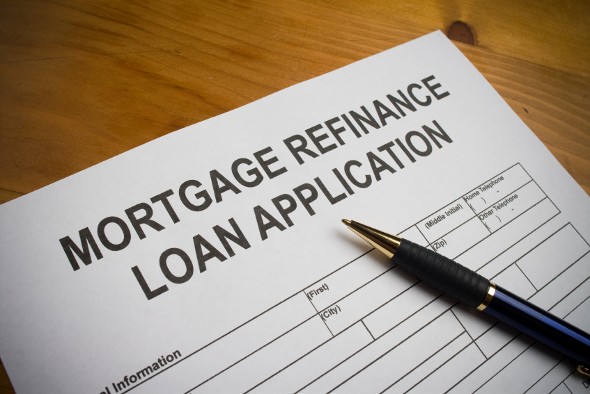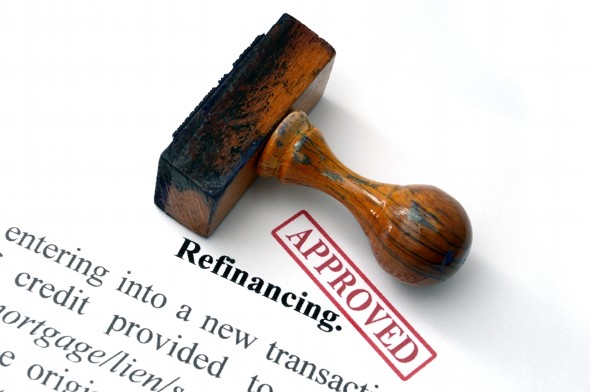Refinance Calculator

Photo credit: © iStock/Kirby Hamilton
What is Refinancing?
Refinancing a mortgage entails getting a new loan on your home with new terms. It is generally done to either change the length of the loan or get a more beneficial (aka lower) interest rate. Of course, you could also be refinancing to get some equity out of your home (to free up some cash to use elsewhere).If you’re looking to build equity in your home sooner, you can refinance to a shorter term loan. Refinancing to, say, a 15-year loan will mean your monthly payments will be higher but you will be done paying off your loan sooner. You will own the home outright in a shorter period of time. Overall, the cost of the home will be lower because you will pay less interest.
If you are looking to free up cash for other needs, you might want to do the opposite. By refinancing to a longer term, you will have lower monthly payments. But you will be making these payments for a longer time and in the end paying more interest. Still, this can be helpful if other expenses in your monthly budget have gone up or you have other investment opportunities you want to explore.
Things You Need to Know
This can be a big decision. When you first bought the house you probably thought you were done thinking about mortgages, interest rates and all of that. But as with many financial decisions, it’s a good idea to revisit your mortgage situation and make sure it is still in your best interest.There are many factors you should consider when determining whether to refinance. These include your current mortgage size, the new mortgage you would be taking out, the current home value, the current interest rate of your loan, the new interest rate and the closing costs.
OK, so Should I Refinance?

Photo credit: © iStock/LincolnRogers
The main number you are looking out for is the point when the monthly savings of the new mortgage become greater than the up-front costs of refinancing. In other words, how long will it take you to recoup the fees you paid to do the refinance? If that number is within the timeframe you plan on staying in the house, you may want to refinance. If you're planning on selling in the near future, refinancing might not be worth it.
A good refinance calculator (like the SmartAsset one above, lucky you!) will show you the two scenarios – keeping your current mortgage and getting a new one. Then you can see how your monthly payment will be affected and how much you can expect to pay in closing costs. This also shows that very important timeframe for how long you have to maintain the new mortgage to save enough money to cover the up-front costs. Basically, this is the point when you start actually saving money.
When to Refinance

Photo credit: © iStock/alexskopje
It’s not just interest rates that change, though. You’ve probably changed a bit since you got your mortgage as well. If you’ve grown not just older, but wiser too, you may have improved your credit score. This means that while you might have had good credit before, now that you have EXCELLENT credit, you may qualify for a better interest rate.
Another sign that you should be refinancing is if you want to change the terms on your mortgage. One example of this is the length of the mortgage, which we touched on before. You can get a longer mortgage to make monthly payments smaller or a shorter mortgage to reduce overall costs. But you can also switch from an adjustable-rate mortgage to a fixed rate. If you’ve been enjoying a low rate with your ARM but now you want some stability, you can use a refinance as an opportunity to lock in a fixed rate.
Reasons You Might Not Want to Refinance
Refinancing usually requires you to have a certain amount of equity in your home. If you don’t have that, refinancing can be tough. The general refinancing rule of thumb is that lenders like you to have at least 20% equity in your home but there are exceptions.Gone through some difficult financial times since you got your first mortgage? Say your credit has gotten worse since you first got your mortgage. You may not qualify for a refinance mortgage even if interest rates are available that are lower than what you have now.
Just like when you get a mortgage to first buy a home, there are some fees to refinancing your mortgage. The closing costs for a refinance cover things like application, loan origination and appraisal fees. If you don’t have the money to pay for closing costs up front, there is an option to roll them into the new mortgage. But this isn’t always the best decision. Sometimes adding those extra costs to your new monthly mortgage payments can negate any savings the refinance would otherwise get you.
Planning to move soon or have a job that uproots you regularly? Refinancing may not make sense because it generally takes some time to recoup those up-front closing costs.
And one more reason you might want to hold off on refinancing your mortgage: if you have to pay a penalty on your original mortgage. Some lenders will charge you a fee for paying off your mortgage early, even if you’re refinancing. Again, this could totally negate the savings of the refinance.
Making the Decision
Ultimately, whether you should refinance your current mortgage will come down to your specific situation. A refinance calculator can help you determine if it’s right for you. Happy number crunching!Source : https://smartasset.com/refinance/refinance-calculator